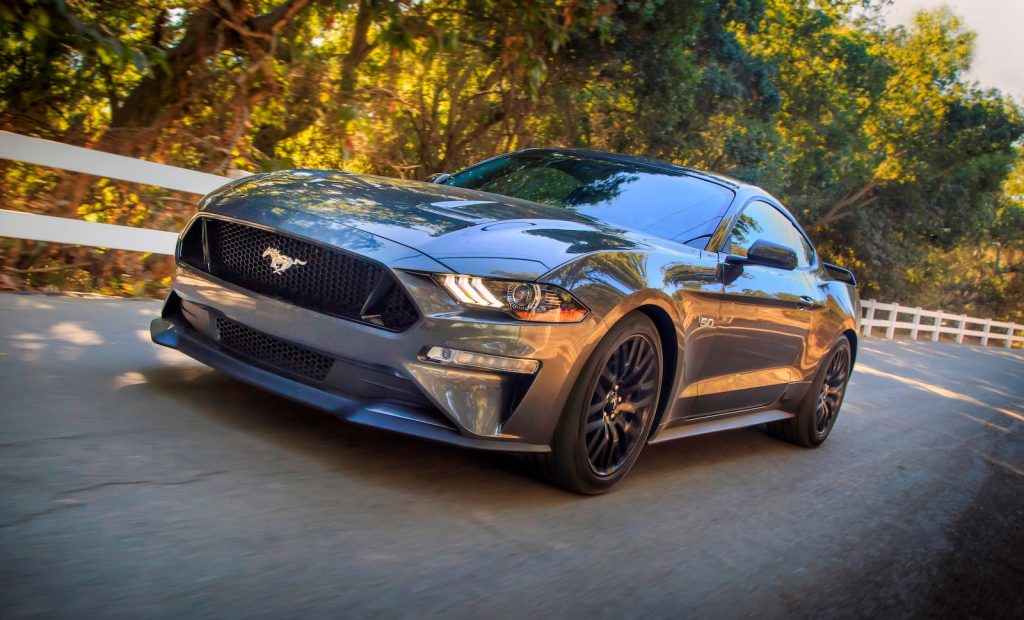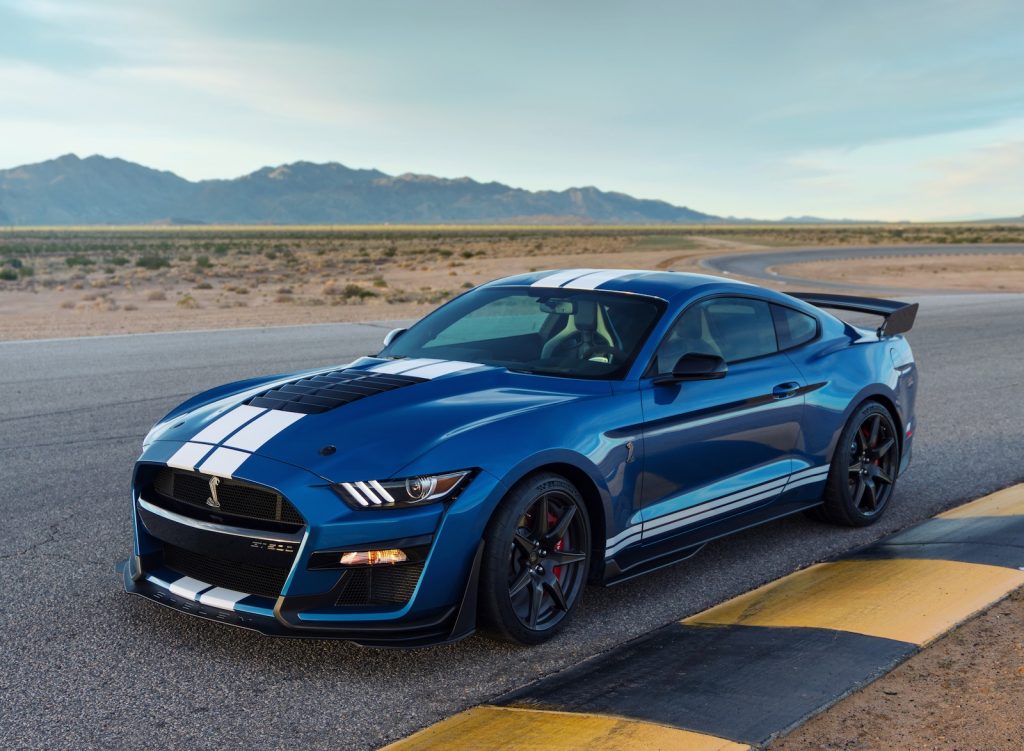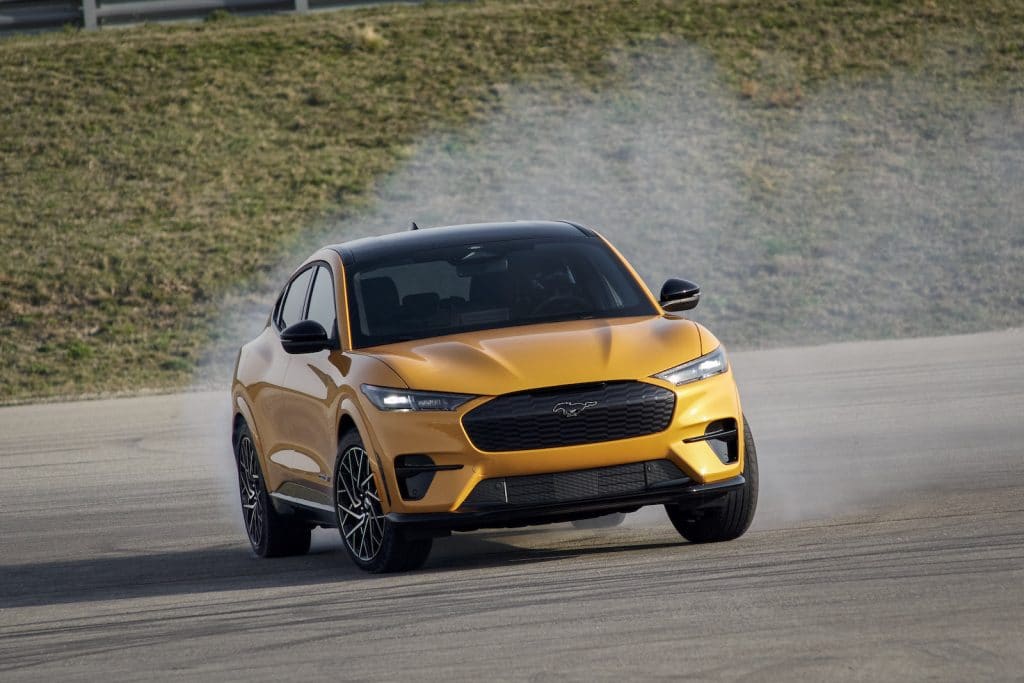In the better-late-than-never column, Ford is reportedly working up a hybrid version of the original Mustang coupe and plans to have it in showrooms by 2025.

That news was presented to dealers during a meeting in Dallas last week, according to reports in Automotive News and elsewhere. Ford has not confirmed the report and normally refuses to comment on future product programs — except those that it decides to make public.
That was the case four years ago when then-CEO Mark Fields said the automaker was going to bring to market hybrid versions of two of its most iconic vehicles: the Mustang coupe and the Ford F-150 by 2020. Ford followed through on the pickup, launching the F-150 PowerBoost late last year as a 2021 model. It has largely stopped talking about a hybrid Mustang, however.
Like the rest of the industry, Ford has accelerated its electrification program during the last several years. In May, current CEO Jim Farley announced plans to spend $30 billion by 2030 on battery-powered products, a 40% increase compared to its previous target.
Different strokes
Unlike some competitors, notably its crosstown rival General Motors, Ford is sticking with its earlier strategy of bringing out a mix of different battery drive systems, including hybrids, plug-in hybrids or pure battery-electric vehicles.

It only recently launched its first long-range all-electric model, an SUV version of the Mustang, the Mach-E, that has received widespread kudos and strong demand from buyers. Its next battery-electric vehicle will be the F-150 Lightning due to go in production next June. Preliminary demand has been so strong the automaker is planning to double initial production run.
Meanwhile, it has been launching a variety of hybrids. And, as with the Mach-E, most use electric assist not only to increase fuel economy but also to deliver a significant boost to performance. The plug-in version of the Lincoln Aviator is the most powerful and fastest version of that SUV, making 494 horsepower and 630 pound-feet of torque, and launching to 60 in barely 5 seconds. With a conventional hybrid, the F-150 Power Boost matches the capabilities of the pickup’s biggest V-8 version in numerous categories.
Exactly what form the Ford Mustang Hybrid will take is uncertain. It would be possible to make it the fastest model in the line-up, exceeding even the numbers of the current Shelby GT 500, its 5.2-liter V-8 punching out a neck-snapping 760 horsepower and 625 pound-feet of torque. And electric motors provide one distinct advantage: instantaneous torque.
Patent pending
Ford appeared to be giving a hint of what might be coming when it filed a patent in 2019 for a powertrain configuration pairing twin electric motors with a V-8 engine. If that — or some similar layout — is what’s coming, it would mark only the second time a Mustang would be offered with all-wheel drive, the first being the all-electric Mach-E.

Pushing power out through all four wheels could offer several advantages. It would make it easier for the tires to grip pavement during an aggressive launch and, at higher speeds, the system could torque vector, pushing more power to the outer wheels to help steer through a tight corner. The other advantage is that Ford wouldn’t have to completely reengineer the Mustang’s underlying platform to make it possible to send power to all four wheels.
That said, the Mustang is expected to undergo some major updates to its current platform in the next several years, with a major makeover of the pony car due out in late 2022 as a 2023 model year offering. The hybrid would follow by 2025, according to reports — though it is unclear if that references model or calendar year.
Electric muscle
Ford is by no means the only automaker looking to use hybrid power to enhance performance. An array of automakers are taking a similar approach, whether with their SUVs, sedans, coupes or sports cars. That runs all the way up to Ferrari and Lamborghini, the latter planning to bring out a mix of electrified models starting by mid-decade.
Others, however, see pure electrification as the better route to performance. In June, Dodge confirmed an earlier report from TheDetroitBureau.com, acknowledging work on an all-electric muscle car expected to be the fastest production vehicle it’s ever built — and likely to challenge the Tesla Model S Plaid as fastest off-the-line, street-legal model ever. Meanwhile, with its parent General Motors moving towards an all-electric line-up, it has been widely rumored that Chevrolet is developing a BEV version of its Camaro model.







